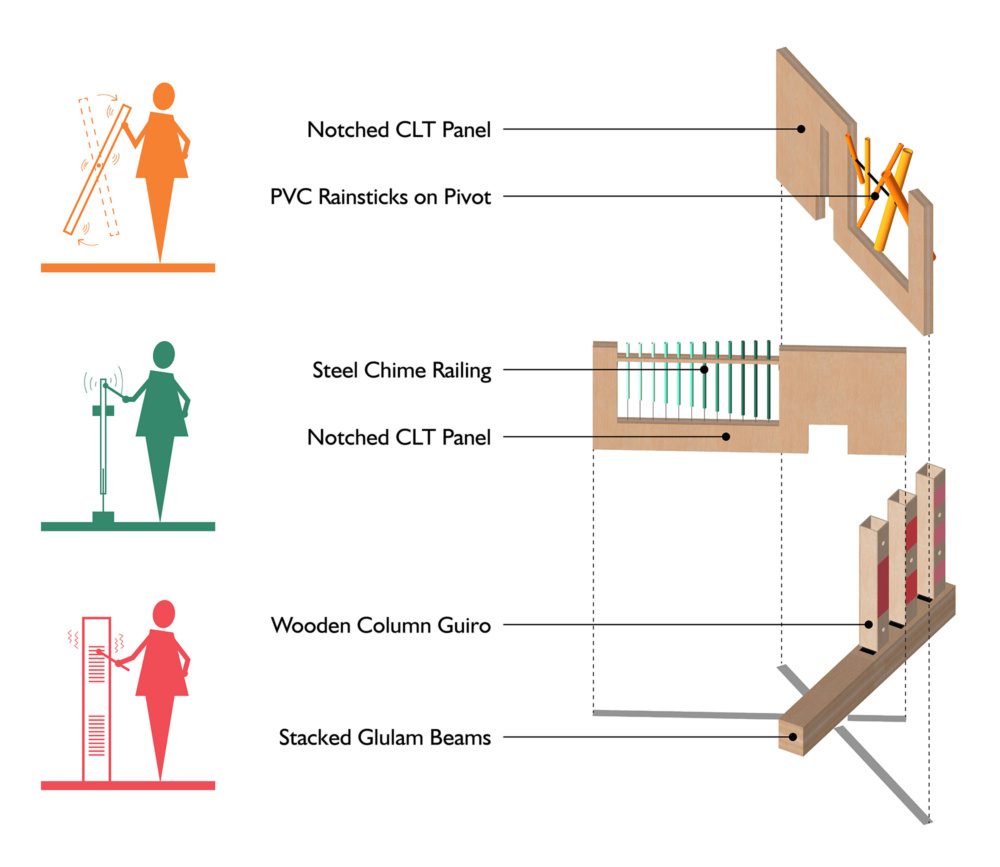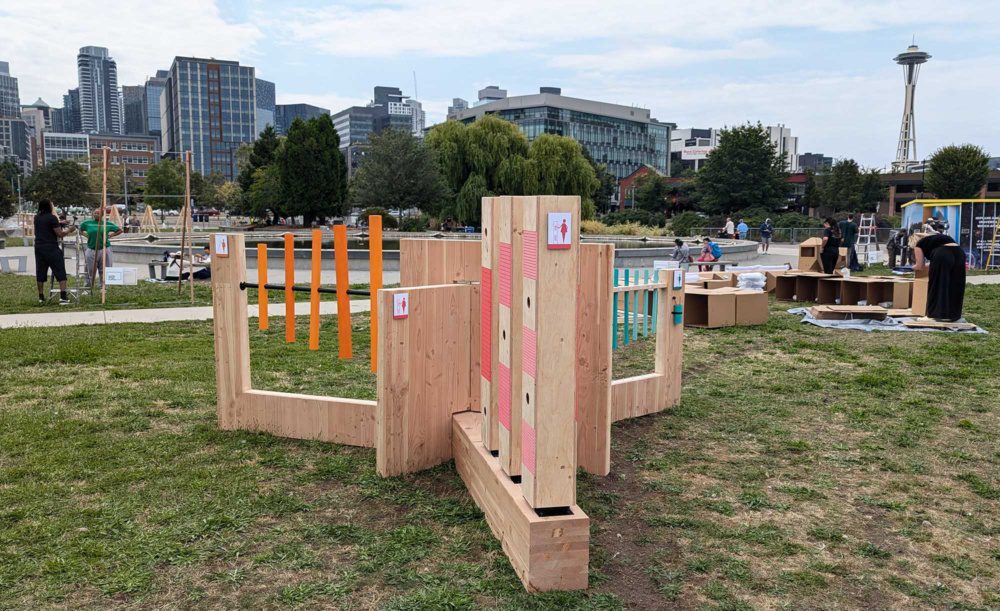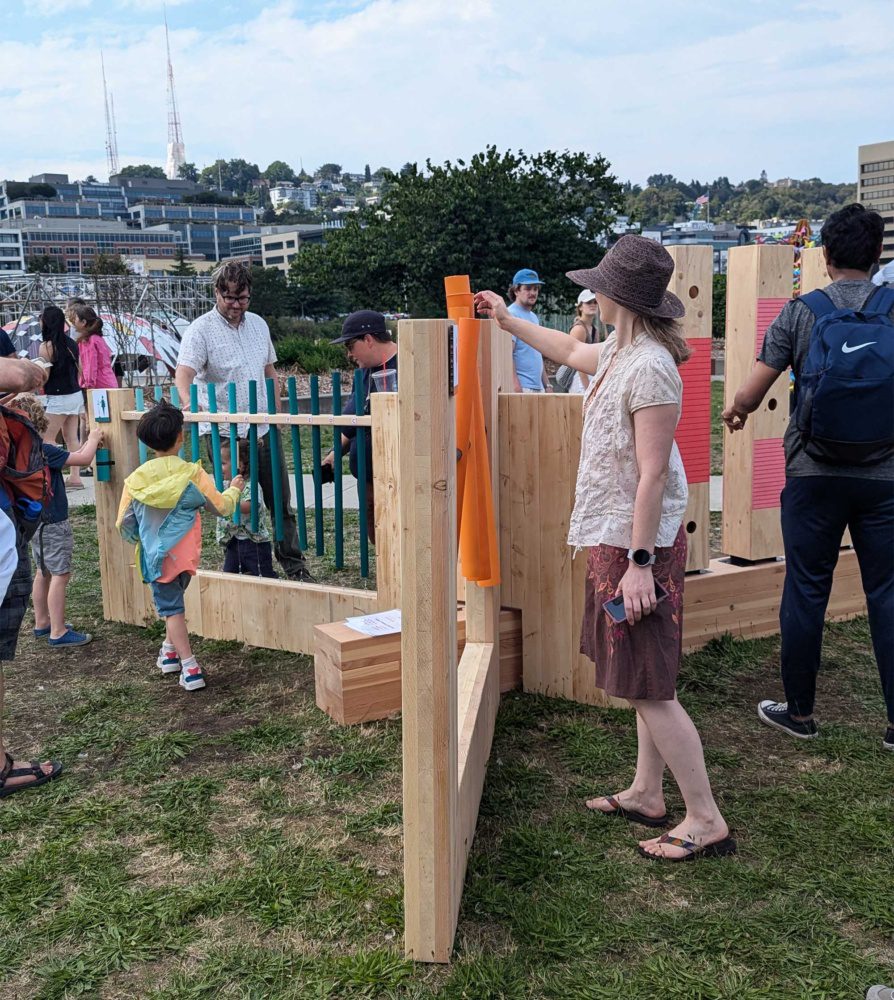
Music is everywhere—quietly hand drumming while waiting for that file to open or the echoing rhythm of your footsteps as you walk down the hallway. Even blaring car horns consist of musical notes that tell you to pay attention. It’s easy to find music beyond your headphones, but within the architectural realm, it’s rarely the focus of a building’s design. Our team wanted to explore this missing link and brought music to the forefront of our thinking for the 2024 Seattle Design Festival (SDF) Block Party. “What if?” was this year’s festival theme, so our thoughts and conversations led us to ask: what if structures could sing?
Did you mean: Timber?
Timbre (tam-ber) is named after the French word that refers to the quality or character of music. Similar in spelling to the word “timber,” this prompted us to begin with an exploration of material and sound, taking inspiration from musical instruments and sound-related public installations, like the Seattle Sensory Garden near the Woodland Park Zoo. Due to the highly interactive nature of an experience that includes playable instruments, we found that percussion instruments were the most intuitive choice. But, how does all of this relate to buildings?

Making music from architecture
Among the countless architectural elements within a building, three stood out the most because of their strong analogies to musical instruments.
- The column—specifically, a mass timber column—was most familiar to us, especially after the recent completion of Northlake Commons. Bearing resemblance to the güiro, a grooved wooden percussion instrument heard mainly in Latin American music, we designed hollow wooden columns featuring kerfed patterns like those seen on the instrument.
- As Seattle residents, our natural focus then shifted to rain; downspouts and rain leaders were quickly associated with rainsticks, particularly because of their obvious sound and their analogous function.
- Railing, the final element, proved to be the trickiest, but, eventually, we discovered that chimes looked very similar to a row of balusters underneath a top rail.
These instruments were intriguing on their own, but the next challenge was to create a frame that united all of them into a cohesive display. Enter Timberlab and Swinerton, our two SDF partners that generously donated materials and helped with the construction. In addition to music, Timbre also celebrates mass timber by employing a three-armed interlocking design made of salvaged CLT panels and glulam beams. This interlocking design is reminiscent of construction techniques used in mass timber projects, using its own geometry to stabilize itself under the pressures of being played. Together, with additional salvaged materials and labor efforts from our office, the team created a final product that sounded pleasant, while sparking curiosity and appealing to the playful nature of all who experienced it.

Beyond the weekend-long Block Party, plans for Timbre appear optimistic! In compliance with SDF’s new post-festival waste reduction measures, several organizations and community groups have expressed interest in seeing the exhibit continue making music in the future. While no plans have been solidified yet, we are eager to see Timbre continue delighting the public, especially as an example of playful and inspiring design. As architecture continues to address the more prevalent issues of sustainability and affordability, we hope to see music be given more space in architectural discourse to be seen… and heard!
